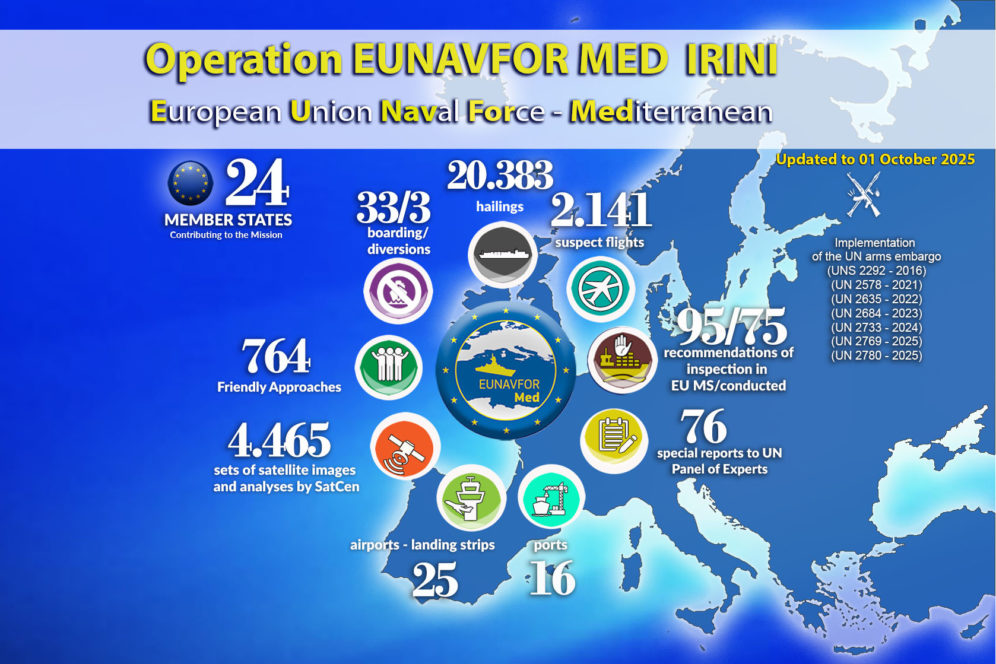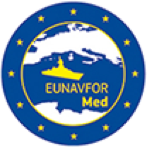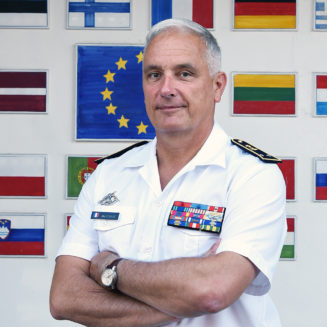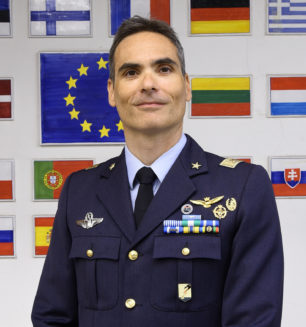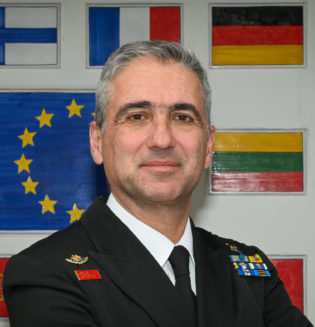The Libyan peace process took place through a series of meetings, initiatives and actions aimed at resolving the long lasting Libyan Civil War. Among them, January 2020 conference in Berlin involved many World Powers, International and Regional organizations and representatives of countries of the Mediterranean Basin, all committed to a peaceful solution to the Libyan conflict.
One of the outcomes of the conference was the necessity to effectively implement the UN arms embargo on Libya. In order to deliver this outcome, on 17 February 2020, the Foreign Affairs Council of the European Union decided to launch a new CSDP (Common Security and Defence Policy) Operation in the Mediterranean focused on the implementation of the United Nation Security Council (UNSC) Resolutions on the arms embargo on Libya, while closing Operation EUNAVFOR MED SOPHIA. The new Operation, named EUNAVFOR MED IRINI (Greek for "peace") was thus launched on 31 March 2020 and extended to 31 march 2027 with Council Decision (CFSP) 2025/488. Its core task is the implementation of the UN arms embargo on Libya through the use of aerial, satellite and maritime assets. In particular the mission is mandated to carry out inspections of vessels on the high seas off the coast of Libya suspected to be carrying arms or related material to and from Libya in accordance with UNSC resolution 2292 (2016) and subsequent UNSC resolutions, in addition to monitoring violations perpetrated via aerial and land routes. As secondary tasks, EUNAVFOR MED IRINI also:- monitors and gathers information on illicit exports from Libya of petroleum, crude oil and refined petroleum products,
- contributes to the disruption of the business model of human smuggling and trafficking networks through information gathering and patrolling by planes,
- provides Capacity Building and Training in support of the Libyan Institutions, responsible for law enforcement and Search and Rescue (SAR) at sea, upon request of Libyan Authorities,
- enhances maritime situational awareness by monitoring and gathering information on various illicit activities and threats to maritime infrastructure within its capabilities.
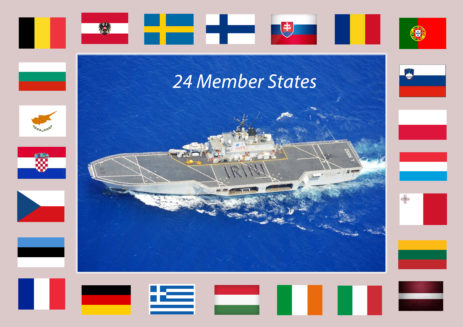 The operation is currently led by Rear Admiral Marco Casapieri as EU Operation Commander, and its headquarters is located in Rome, Italy.
Launched on 31 March 2020, after the force generation process and despite the Covid-19 pandemic, the Operation effectively started its activity at sea on the 4 May 2020. On 10 September 2020, the first boarding activity at sea took place and the full operational capability was declared.
The operation is currently led by Rear Admiral Marco Casapieri as EU Operation Commander, and its headquarters is located in Rome, Italy.
Launched on 31 March 2020, after the force generation process and despite the Covid-19 pandemic, the Operation effectively started its activity at sea on the 4 May 2020. On 10 September 2020, the first boarding activity at sea took place and the full operational capability was declared.
